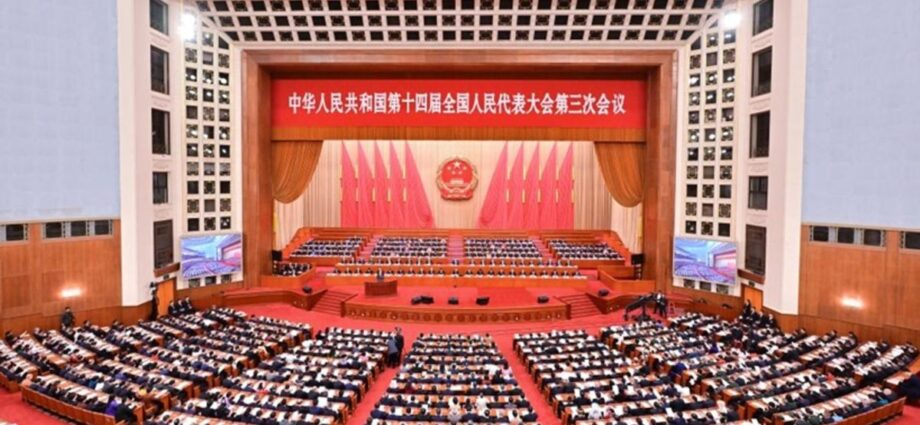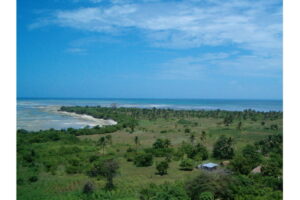
The Chinese people often say, “A good start in spring is essential to a whole year.” Spring in China coincides with the rainy season in Tanzania, a season for flowers to bloom and for trees to grow. Every spring, China welcomes a key event on its political calendar – the National Two Sessions, namely the annual sessions of the National People’s Congress (NPC) and the Chinese People’s Political Consultative Conference (CPPCC).
The Government Report adopted at the Two Sessions has reviewed China’s development achievements over the past year, set a growth target of 5 percent for the Chinese economy in 2025 and further clarified tasks to expand high-standard opening-up. China will continue to empower the world through high-standard opening-up and provide new key impetus for global economic recovery and development. I would like to highlight the following aspects:
First, the economy has demonstrated strong resilience. Last year, China’s gross domestic product (GDP) rose to 134.9 trillion yuan (approximately Sh48,178.57 trillion) , a year-on-year increase of 5 percent. China ranks among the world’s fastest-growing major economies, continuing to contribute about 30 percent to global economic growth, remaining the most powerful engine of global growth. Per capita disposable income grew by 5.1 percent in real terms, faster than the GDP growth.
China has a huge market advantage, with a per capita GDP of over US$12,000 and a middle-income group of over 400 million people. This year, China will also issue ultra-long special treasury bonds totaling 300 billion yuan to support consumer goods trade-in programs. The rising consumption capacity of Chinese residents has bolstered global exports of premium products.
High-quality Tanzanian agricultural products such as honey, avocados and chili peppers showcased at the China International Import Expo (CIIE), have reached Chinese households. This not only diversifies consumer choices in China but also generates tangible benefits for Tanzanian communities, further solidifying the outcomes of China-Tanzania economic and trade cooperation.
Second, new quality productive forces have demonstrated robust momentum, with remarkable highlights emerging across multiple sectors. As Foreign Minister Wang Yi remarked at the Two Sessions press conference, China’s confidence comes from its super-sized market and huge domestic demand, from its robust industries and innovative drive and more importantly, from its institutional strength and reform and opening up.
China’s development of new quality productive forces has accelerated markedly, with emerging and future industries registering initial success. Groundbreaking innovations in AI Deepseek have captured global attention, while the Chang’e-6 probe achieved humanity’s first-ever sample return from the far side of the Moon and the Dream ocean drilling vessel was officially commissioned. The installed capacity of renewable energy surged by 370 million kilowatts, now accounting for over 50 percent of the nation’s total power generation capacity.
Third, China will provide certainty to this uncertain world. Just as Foreign Minister Wang Yi stressed to the press, today, unilateralism is on the rise, power politics runs rampant and certainty is becoming a scarce resource. The choices made by countries, especially major countries, will determine the trajectory of our times and shape the future of the world. China’s diplomacy will stand firm on the right side of history and on the side of human progress. China will provide certainty to this uncertain world.
We will be a just and righteous force for the world peace and stability and will continue to expand our global partnerships featuring equality, openness and cooperation. The Government Work Report outlined that China will expand higher-standard opening up and advance unilateral opening up in a well-ordered way, so as to promote reform and development through greater openness.
This year we will witness the 50th Anniversary of the completion of the TAZARA Railway, which holds a special place in the history of China-Africa relations and South-South cooperation. At present, China, Tanzania and Zambia are jointly advancing market-oriented revitalization cooperation for the TAZARA, which will create more opportunities for shared development in the future.
We are confident that China and Tanzania, as true brothers and partners through thick and thin, will continue to deepen our comprehensive strategic cooperative partnership under the guidance of head-of-state diplomacy and join hands on the path to modernization.
Chen Mingjian is the Chinese ambassador to Tanzania














